
 Flash News
Flash News
Ceno Klosi with over 800 stolen votes, Balluku finds the reason is the tiredness of the counters
"Fast & Furious" in the former Block, police chase an Audi Q8, 4 cars collide
Car hits two tourists on a motorcycle in Fushe Arrëz, one of them dies
Serious accident in Thumanë, one dead, 3 injured
Durrës Court suspends the director of Pre-University Education from duty
'Kürüm', the company of scandals, from toxic waste to defrauding 33 banks with fictitious invoices

Hundreds of tons of hazardous waste were loaded at the Port of Durrës with destination Thailand, and for this the "Kurum" Company has been targeted.
The alarm was raised by the Basel Action Network, a United States-based organization that works to implement the Basel Convention. Also, it was reported that the cargo will not arrive in Thailand, but will be returned to Albania, where it will be subjected to investigation.
The Durrës Prosecutor's Office seized from the Kurum company documentation that is believed to be related to the case.
The Ministry of Environment in a reaction to the media admitted that the waste loaded in Durrës came from the metallurgist. " Volumes of goods which are suspected to contain waste from the technological process carried out by international companies operating near the metallurgical complex in Elbasan" , the ministry said in a statement to the media.
Therefore, the Kurum Company has denied having anything to do with the export of hazardous waste.
The scandal
The suspected export of hazardous waste from Albania was denounced on August 5 by the 'Basel Action Network', an environmental organization based in the United States. BAN raised the alarm that a giant container ship of 175 thousand tons of the 'Maersk' line disappeared at the end of July from the radars near Cape Town in South Africa, after a signal made by it to the local authorities.
Based on information provided by a whistleblower, Basel Action Network, BAN believes that the ship 'Maersk Campton' and a second container ship of the same line, 'Maersk Candor', loaded at the port of Durrës at the beginning of July about 100 containers of hazardous waste, which comes from the ash of electric metallurgical chimneys (EAFD) destined for Thailand.
Based on the notification of BAN, the port authority has blocked the containers from Albania in Singapore and they are expected to return to Durrës in the coming months. The prosecution has identified the company "Sokolaj" shpk, a mineral import-export company based in Durrës owned by citizen Gjovana Sokolaj as the exporter of the containers and the Turkish company "Kurum International" sh.a as the source of these products.
Iron company "Kurum" accused of defrauding 33 banks with fictitious invoices, benefiting 210 million euros
In July 2020, the biggest bank fraud of the last ten years in Turkey, which is related to one of the most well-known companies in the iron production sector in the country, arrived in court.
Gazeta turke “Sabah” shkruante asokohe se skandali i kompanisë turke “Kürüm Demir”, e cila ka operuar në Shqipëri përmes kompanisë “Kürüm International SHA” ka të bëjë me një mashtrim gjigant që i është bërë bërë 33 bankave në Turqi, Shqipëri dhe Angli.
Siç shkruan gazeta, mashtrimi ishte aq mirë i menduar sa “nuk do t’i shkonte ndërmend as djallit”.
Kompania “Kürüm Demir” i përket biznesmenit të njohur Haşmet Bedii Kürüm, i cili ka qenë më herët edhe pronari i ekipit të futbollit të Besiktasit në Turqi.
Ajo u padit në gjykatë nga 14 banka turke për mashtrim, pasi mori rreth 191 milion euro kredi përmes bilanceve fiktive, ndërkohë që kompania në fakt ishte duke falimentuar.
Të njëjtën praktikë sipas “Sabah”, kompania turke e ka ndjekur edhe në Shqipëri përmes “Kürüm International SHA” duke marrë 210.3 milion euro kredi nga bankat shqiptare.
Siç shkruan “Sabah“, “Kürüm International SHA” në Shqipëri ka marrë kredi përmes bilanceve fiktive nga bankat “IFC”, “Raiffesein”, “Credit Europea”, “Societe Generale (tani OTP) dhe “NBG Bank”.
Mashtrimi në Turqi
“Kürüm Demir” ishte një ndër kompanitë më të mëdha të prodhimit të hekurit në Turqi. Deri në vitin 2013, kur hekuri prodhohej kryesisht përmes mbledhjes së skrapit, kompania kishte të ardhura të mira dhe nxirrte mjaft fitim. Gjithçka ndryshoi pas vitit 2013, kur kompanive iu duhej që ta nxirrnin hekurin përmes përpunimit të pasurive nëntokësore. Kjo rriti kostot nga njëra anë duke ulur fitimin e kompanive, ndërkohë që nevojiteshin investime të mëdha për të qenë konkurrent në treg.
Siç raporton “Sabah”, ky ishte momenti kur kompania filloi të përballej me humbje, por drejtuesit e saj përdorën bilance fiktive për ta treguar kompaninë me fitime.
Përmes këtyre bilancëve dhe përdorimit të kompanive fantazmë për të treguar në mënyrë të rrejshme se kishte porosi të shumta, “Kürüm Demir” mashtroi bankat duke vijuar të marrë kredi edhe pse ishte në prag të falimentimit.
Më pas kompania aplikoi tek autoritetet e taksave dhe tatimeve për të shtyrë falimentin, ndërsa shiti pronat e saj tek kompanitë e tjera të hapura nën emrin e të afërmve të Haşmet Bedii Kürüm.
Synimi ishte që kur kompania të falimentonte, pronat të ruheshin dhe bankat të mos kishin se çfarë të sekuestronin.
Mashtrimi në Shqipëri
Gazeta turke “Sabah” shkruante se kompania mëmë “Kürüm” ia faturonte një pjesë të humbjeve të sa atje, filialit në Shqipëri “Kürüm International SHA”.
Për të mbuluar këto humbje, “Kürüm International SHA” në Shqipëri aplikoi përmes bilanceve fiktive për kredi tek disa banka shqiptare duke marrë prej tyre diçka më shumë se 210 milion euro kredi prej tyre.
“Sabah” shkruan se bëhet fjalë për bankat “IFC”, “Raiffesein”, “Credit Europea”, “Societe Generale (tani OTP) dhe “NBG Bank”.
Drejtuesit e kompanisë akuzohen nga autoritetet turke për vepra të rënda penale si mashtrimi dhe pastrimi i parave.
The fraud committed by "Kürüm Demir" has caused great concern in Turkey, at a time when the banking sector is in great difficulty due to the great economic problems the country is going through, which are accompanied by a rapid increase in loans. with problems.
It remains to be seen how this fraud will be reflected in Albania, which has "absorbed" 210 million euros from Albanian banks alone.
Latest news





Lufta në Gaza/ Pse Netanyahu do vetëm një armëpushim 60-ditor, jo të përhershëm?
2025-07-02 21:56:08
US suspends some military aid to Ukraine
2025-07-02 21:40:55



Methadone shortage, users return to heroin: We steal to buy it
2025-07-02 20:57:35
Government enters oil market, Rama: New price for consumers
2025-07-02 20:43:30
WHO calls for 50% price hike for tobacco, alcohol and sugary drinks
2025-07-02 20:41:53




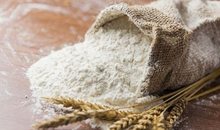


Israel agrees to 60-day ceasefire in Gaza, but many unanswered questions remain
2025-07-02 18:35:27
The weather in Germany is going "crazy", temperatures reach 40°C
2025-07-02 18:22:21

"Fast & Furious" in the former Block, police chase an Audi Q8, 4 cars collide
2025-07-02 17:59:25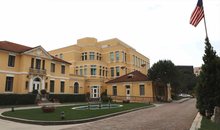
"Birth on a tourist visa? US Embassy warns Albanians: This is prohibited!"
2025-07-02 17:48:16


BIRN: Fier recount reveals vote trafficking within open political party lists
2025-07-02 16:57:19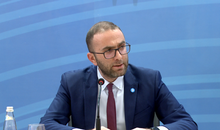

CEO and former director of 'Bankers Petroleum' arrested in Fier
2025-07-02 16:40:42
Car hits two tourists on a motorcycle in Fushe Arrëz, one of them dies
2025-07-02 16:33:23



Fire at the Elbasan Incinerator Landfill, Prosecution Launches Investigations
2025-07-02 15:34:54
What you need to know if you travel to a country with active volcanoes
2025-07-02 15:33:03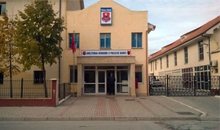



EU proposes 90% reduction in greenhouse gases by 2040
2025-07-02 14:50:23
Europe is burning from the heat / Italy and France are on maximum alert
2025-07-02 14:36:52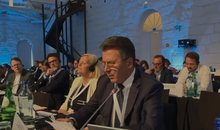

Moscow's contradictory statements: Is the friendship with Vučić breaking down?
2025-07-02 14:21:05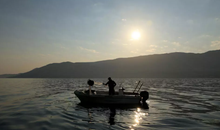
'I lost my battle': Sea warming is killing fishing in Albania
2025-07-02 14:08:35
Sekretet kimike që ndihmojnë në mbajtjen e mjaltit të freskët për kaq gjatë
2025-07-02 14:01:26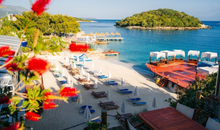
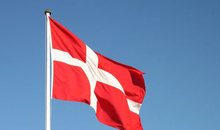
Denmark makes historic decision to make military service mandatory for women
2025-07-02 13:44:33
The appeal of the GJKKO leaves former judge Pajtime Fetahu in prison
2025-07-02 13:30:20
Productivity losses could reduce GDP by 1.3% as a result of extreme heat
2025-07-02 13:21:04
He abused his minor daughter, Zamir Meta is left in prison
2025-07-02 13:04:04

Waste burning in Elbasan, Alizoti: They are poisoning people and stealing money
2025-07-02 12:48:39
Civil disobedience continues in Serbia, dozens of people detained
2025-07-02 12:40:32
Rama's government was born under the sign of garbage and will end like this
2025-07-02 12:28:09
Water prices increase in the municipalities of the Elbasan region
2025-07-02 12:13:38
Civil disobedience continues in Serbia, what is happening in Belgrade?
2025-07-02 12:07:44
Serious accident in Thumanë, one dead, 3 injured
2025-07-02 11:54:42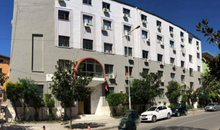
Durrës Court suspends the director of Pre-University Education from duty
2025-07-02 11:49:27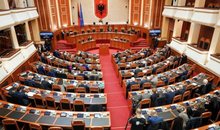
Plenary session on Thursday, what is expected to be discussed
2025-07-02 11:36:43
Europe is burning from heat waves/ What is the 'thermal dome' phenomenon?
2025-07-02 11:26:25
Wanted by Italy for murder, 45-year-old arrested in Vlora
2025-07-02 11:19:31
Fire situation, 28 fires reported in 24 hours, 2 still active
2025-07-02 11:13:20
"Buka" file, preliminary hearing for Ahmetaj postponed to July 17
2025-07-02 11:03:30


Baçi: Belinda Balluku and Ceno Klosi, the most dangerous "gangs" in Fier
2025-07-02 10:32:09
Zamir Meta, suspected of sexually abusing his daughter, arrives in court
2025-07-02 10:21:33

Trump: Israel has agreed to a 60-day ceasefire in Gaza
2025-07-02 10:01:55
Fire continues at Elbasan landfill
2025-07-02 09:51:13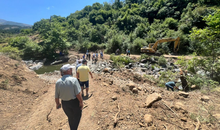

Dates to note during July, important events will occur
2025-07-02 09:31:45
The hearing for Jorgo Goro's claim is postponed
2025-07-02 09:24:19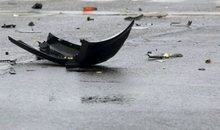

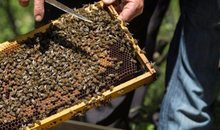

Foreign exchange, the rate at which foreign currencies are sold and bought
2025-07-02 08:42:31
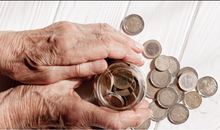
52% of pensioners did not receive full pension in 2024
2025-07-02 08:27:18
Horoscope, what do the stars have in store for you today?
2025-07-02 08:13:36
Hot weather, Wednesday brings high temperatures
2025-07-02 07:59:16
Morning Post/ In 2 lines: What mattered yesterday in Albania
2025-07-02 07:46:15
Heatwave sweeps across Europe, Spain and England record hottest June ever
2025-07-01 22:57:41






Golem and Qerret without water at the peak of the tourist season
2025-07-01 21:09:32

Euractiv: Italy-Albania migrant deal faces biggest legal challenge yet
2025-07-01 20:53:38
BIRN: Brataj and Fevziu victims of a 'deepfake' on Facebook
2025-07-01 20:44:00

Vlora by-pass, work delays and cost increases
2025-07-01 20:24:29



Milan are expected to give up on the transfer of Granit Xhaka
2025-07-01 19:41:25

